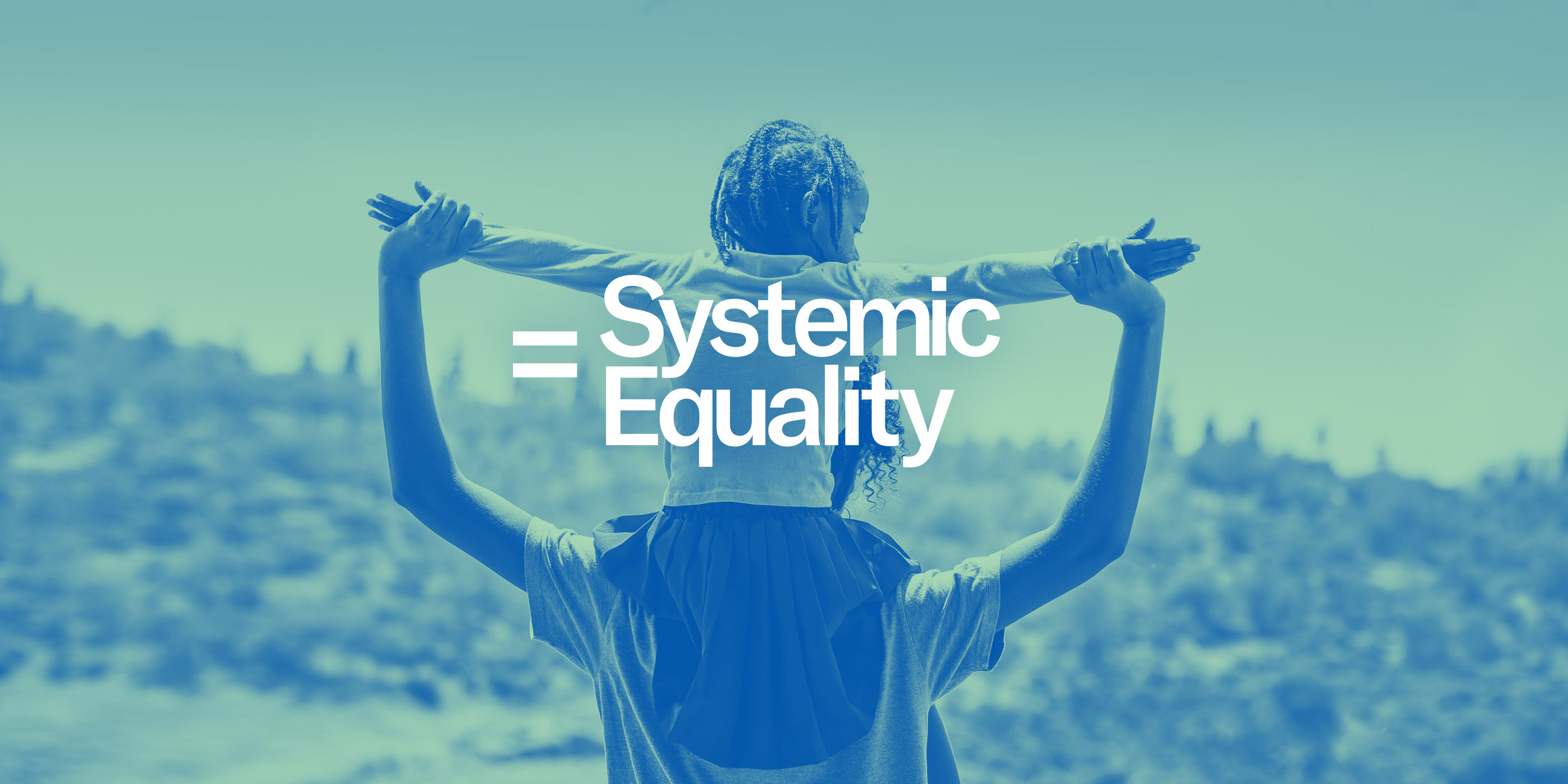
Systemic Equality: Equal Access, Better Futures
Are you ready to take action for Systemic Equality?
Yes, sign me up to learn about actions I can take to ensure every person can achieve their highest potential, unhampered by structural and institutional racism.
By completing this form, I agree to receive occasional emails and text messages per the terms of the ACLU's privacy statement.
Systemic Equality is A Racial Justice Agenda
Since our nation’s founding, discriminatory policies and laws have created an unequal system in which Black communities have had their civil rights and liberties denied and have been systematically locked out of opportunities in education, housing, employment and more.
Through our Systemic Equality agenda, the ACLU will use nationwide litigation, advocacy, and public education to advance laws and policies rooted in racial equity and end discriminatory policies, laws, and practices that have an outsized impact on Black communities.
The ACLU will also continue to evolve our own culture, systems, and processes to drive progress toward our internal racial justice commitments, including by committing sustained recruitment and hiring efforts to recruit more diverse talent pools, developing initiatives to promote and retain Black leadership, engaging Black-owned and Black-led businesses, and more.
When we have full and equal access to education, jobs, housing, voting rights, and more, better futures are possible.
A Spotlight on Fair Housing
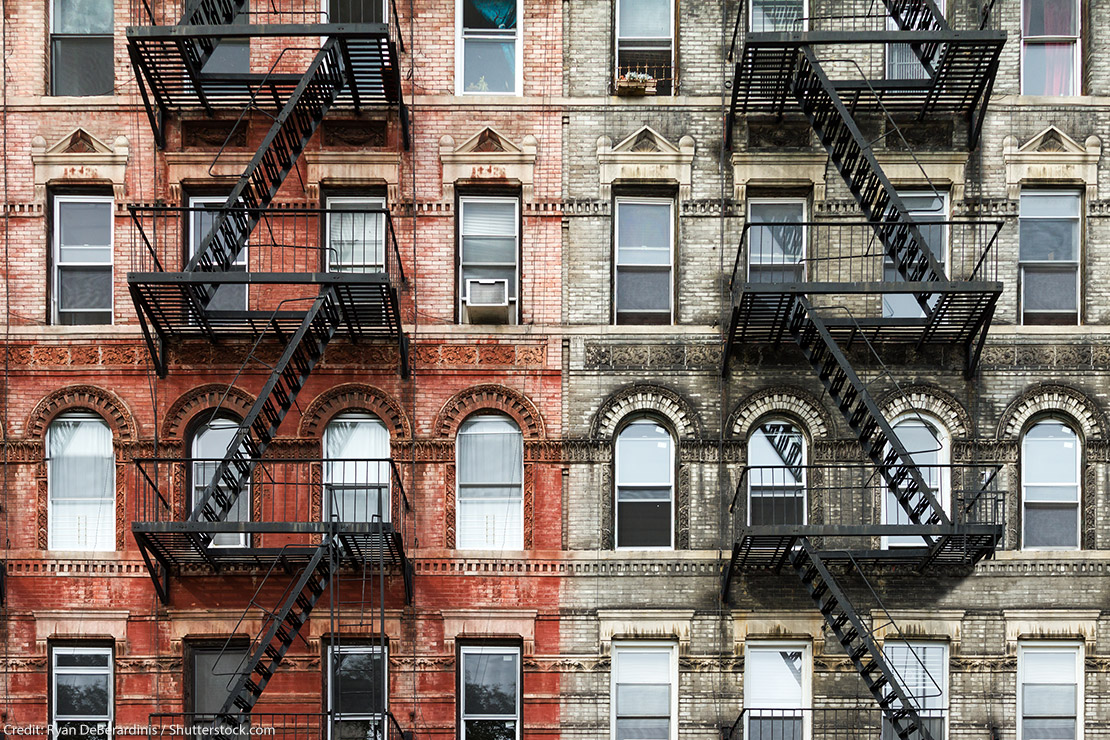
Why Fair Housing is Key to Systemic Equality
Here’s how discrimination continues to impact access to housing today, and why we’re fighting to ensure all people have equal access.

Apply for the ACLU-NBLSA Southern Legal Internship (SLIP) Program
SLIP interns will contribute to crucial campaigns in the issue areas that most affect Black and Brown communities.
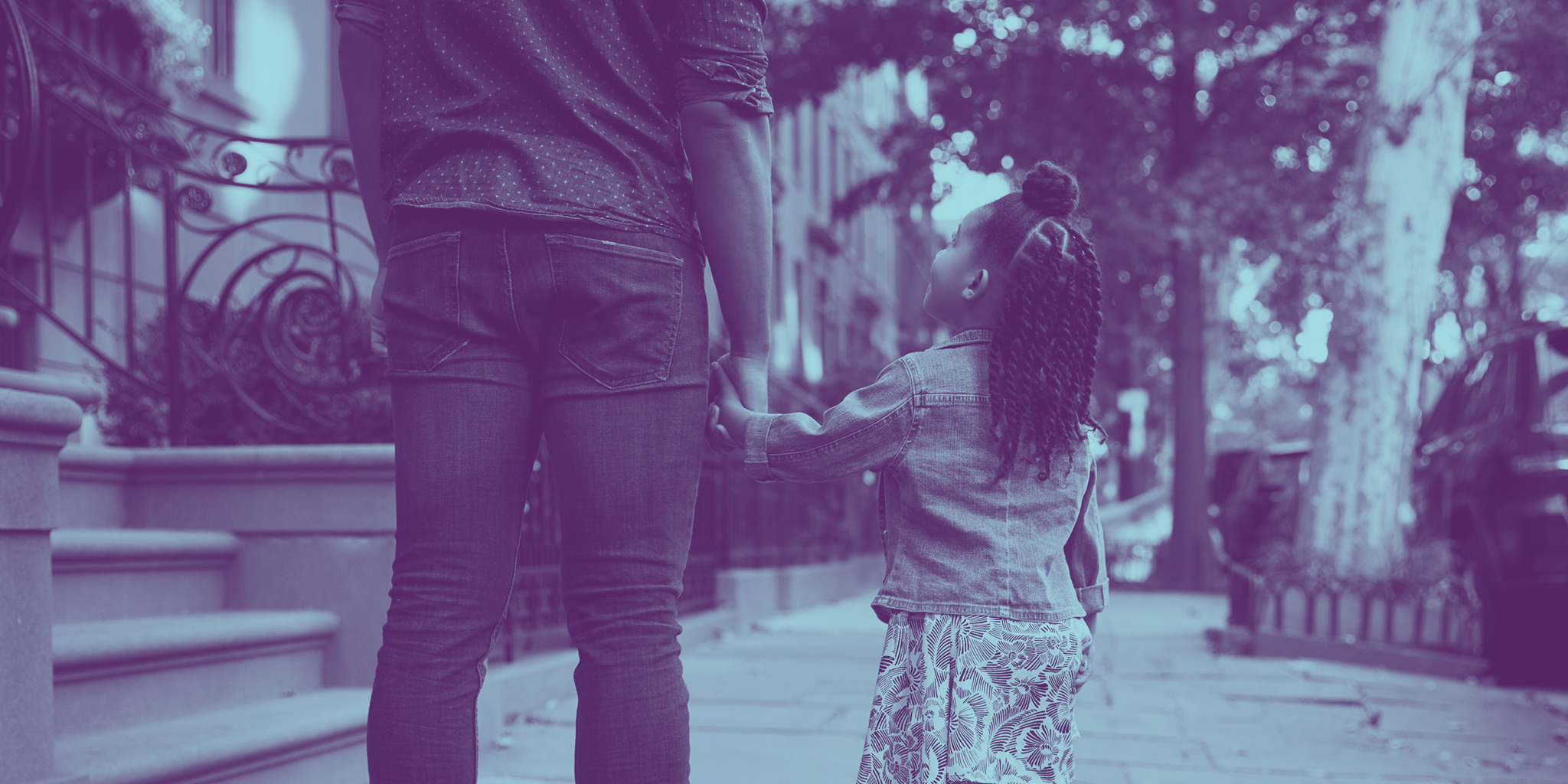
Fair Housing
Our goal is to expand access to stable, affordable housing.
Historic and ongoing segregation and discrimination has prevented marginalized groups — particularly Black communities — from accessing safe, affordable housing and home ownership.
Equal access to housing is a civil right. We must work to reduce mass evictions and barriers to housing opportunities that disproportionately impact Black women renters, and restore important housing protections to expand equal access to housing opportunities for everyone.
Everyone deserves equal access to safe and stable housing.
Our fair housing work includes:
- Challenging Mass Evictions and Barriers to Housing Opportunities: Black women and their families make up the demographic group most likely to face eviction in the United States, resulting in a myriad of harms and reinforcing segregation. Our multi-part campaign includes securing the right to counsel in eviction cases, prohibiting the consideration of prior eviction records in tenant screening, and more.
- Advocating for the Right to Representation: We are engaged in right to representation campaigns in Delaware and New Jersey to ensure all people facing eviction have the ability to assert their rights in court.
Historic and ongoing segregation and discrimination has prevented marginalized groups — particularly Black communities — from accessing safe, affordable housing and home ownership.
Equal access to housing is a civil right. We must work to reduce mass evictions and barriers to housing opportunities that disproportionately impact Black women renters, and restore important housing protections to expand equal access to housing opportunities for everyone.
Everyone deserves equal access to safe and stable housing.
Our fair housing work includes:
- Challenging Mass Evictions and Barriers to Housing Opportunities: Black women and their families make up the demographic group most likely to face eviction in the United States, resulting in a myriad of harms and reinforcing segregation. Our multi-part campaign includes securing the right to counsel in eviction cases, prohibiting the consideration of prior eviction records in tenant screening, and more.
- Advocating for the Right to Representation: We are engaged in right to representation campaigns in Delaware and New Jersey to ensure all people facing eviction have the ability to assert their rights in court.
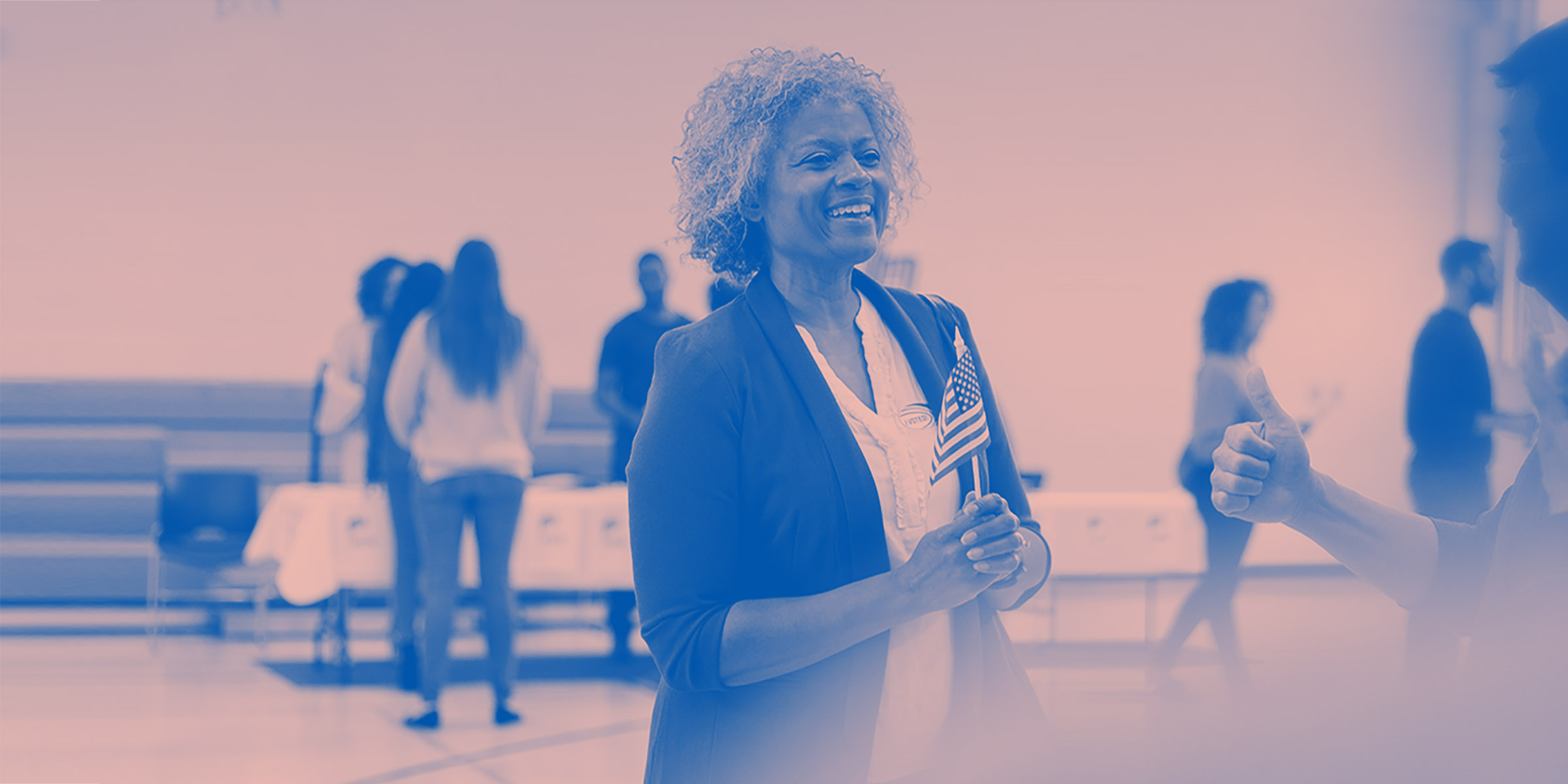
Voting Rights
Our goal is to expand voting access for and build the political power of Black communities.
Black people and communities of color, in particular, have faced numerous obstacles to meaningful participation in the political process, including the redistricting process. The Voting Rights Act of 1965 prohibits the drawing of district lines that dilute the voting strength of communities of color. When Black people and communities of color are minimized through the redistricting process, they are not adequately represented in our democracy, perpetuating the systemic inequality many voters of colors already face.
Redistricting plans should fairly reflect the political strength of communities of color. As data from the last Census confirms, nearly all of the country’s growth over the past decade is attributable to the growth in our nation’s communities of color. Fair maps and voting policies must adequately reflect that reality.
The right to vote should be equally accessible to everyone.
Our voting rights work includes:
- Equal and Fair Political Representation: As part of our ongoing work to ensure legislatures reflect their constituencies and address the longstanding underrepresentation and disempowerment of Black communities, we will advocate for fair voting district maps in six priority states in the South to obtain more equal representation for Black voters.
Black people and communities of color, in particular, have faced numerous obstacles to meaningful participation in the political process, including the redistricting process. The Voting Rights Act of 1965 prohibits the drawing of district lines that dilute the voting strength of communities of color. When Black people and communities of color are minimized through the redistricting process, they are not adequately represented in our democracy, perpetuating the systemic inequality many voters of colors already face.
Redistricting plans should fairly reflect the political strength of communities of color. As data from the last Census confirms, nearly all of the country’s growth over the past decade is attributable to the growth in our nation’s communities of color. Fair maps and voting policies must adequately reflect that reality.
The right to vote should be equally accessible to everyone.
Our voting rights work includes:
- Equal and Fair Political Representation: As part of our ongoing work to ensure legislatures reflect their constituencies and address the longstanding underrepresentation and disempowerment of Black communities, we will advocate for fair voting district maps in six priority states in the South to obtain more equal representation for Black voters.
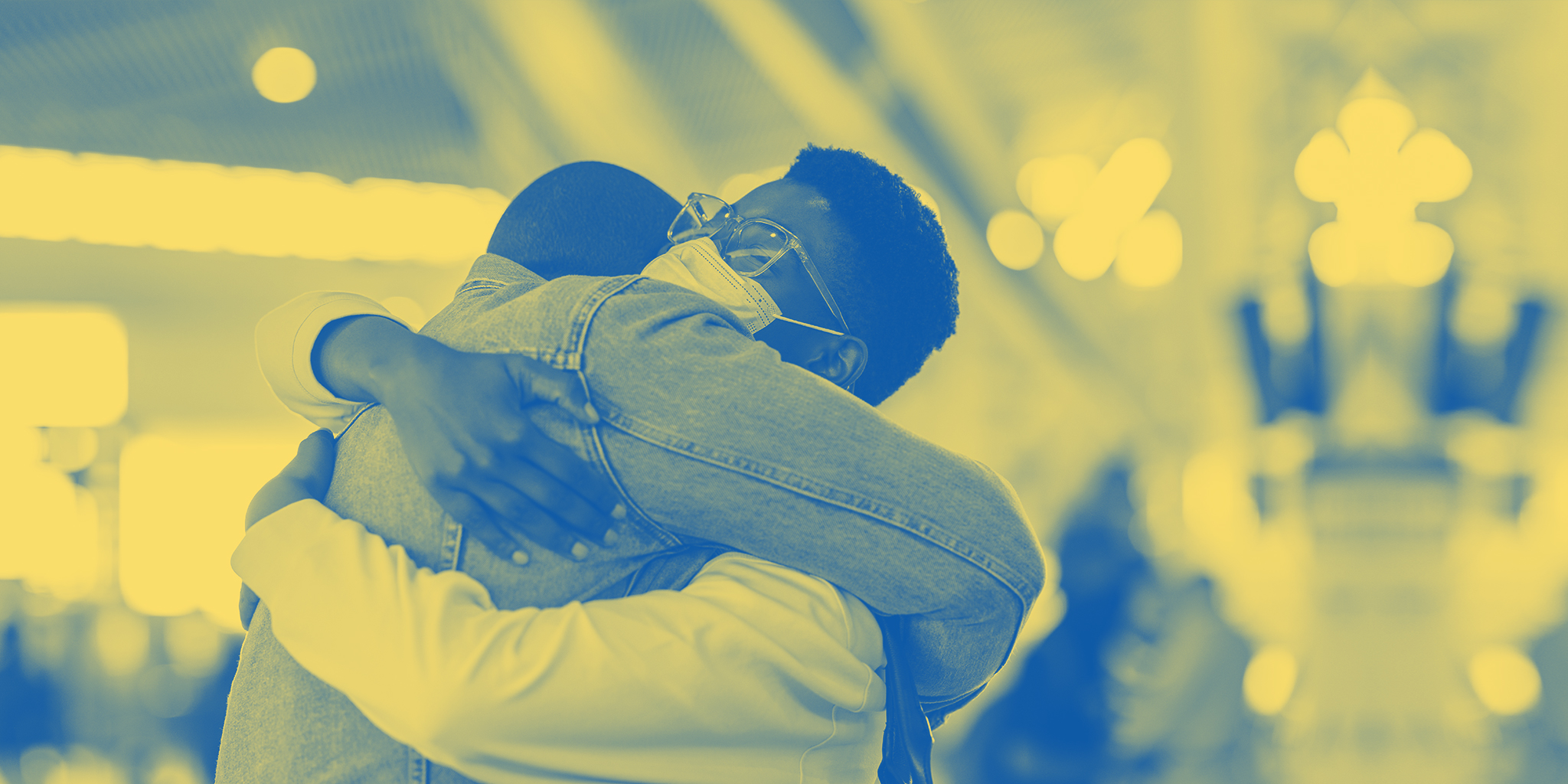
Criminal Justice
Our goal is to improve public safety by investing in Black communities instead of punishment.
Investing in punishment while undermining what we need for equal and thriving communities has resulted in overcriminalization and the unjust and unequal treatment of our communities — especially Black communities.
We improve public safety by addressing root causes of crime, such as poverty and lack of opportunity, while also focusing on strengthening communities through investments in promising solutions. These include increasing access to affordable housing, jobs, education, health care, and mental health and substance use services in our communities. At the same time, we must work to reduce the number of people incarcerated, surveilled, and criminalized by law enforcement and in the courts. We must challenge dehumanizing conditions in jails and prisons and ensure that people returning to our communities are equipped for success. We must challenge cruel, extreme, and discriminatory punishments such as the death penalty and life without parole. We must work to erect meaningful constitutional guardrails on law enforcement — including jail and prison administrators.
We have the power to choose and to invest in real solutions that increase equality, justice, and safety for all of us.
Our criminal justice work includes:
- Challenging Policing: Part of a larger campaign to reimagine community safety that uses litigation and integrated advocacy to challenge racially-biased policing practices and advance community-based and non-punitive approaches to public safety.
- Shrinking the Geography of Mass Incarceration: An integrated effort, our litigation and advocacy will focus on developing legal challenges to stop funding for the expansion or construction of prisons, jails, and detention centers.
- Ending Racially Discriminatory Jury Selection in the Death Penalty: The jury selection process in death penalty trials, known as “death qualification,” removes otherwise qualified jurors from serving in capital trials based on their opposition to the death penalty. The process discriminates against Black jurors, who are disproportionately opposed to the death penalty. The history of the death penalty in America is inextricably tied to the history of lynching, and the opposition to the death penalty within the Black community is rooted in that history. This disenfranchisement from jury service is a fresh injustice compounding the injustice of racial terror and violence.
Investing in punishment while undermining what we need for equal and thriving communities has resulted in overcriminalization and the unjust and unequal treatment of our communities — especially Black communities.
We improve public safety by addressing root causes of crime, such as poverty and lack of opportunity, while also focusing on strengthening communities through investments in promising solutions. These include increasing access to affordable housing, jobs, education, health care, and mental health and substance use services in our communities. At the same time, we must work to reduce the number of people incarcerated, surveilled, and criminalized by law enforcement and in the courts. We must challenge dehumanizing conditions in jails and prisons and ensure that people returning to our communities are equipped for success. We must challenge cruel, extreme, and discriminatory punishments such as the death penalty and life without parole. We must work to erect meaningful constitutional guardrails on law enforcement — including jail and prison administrators.
We have the power to choose and to invest in real solutions that increase equality, justice, and safety for all of us.
Our criminal justice work includes:
- Challenging Policing: Part of a larger campaign to reimagine community safety that uses litigation and integrated advocacy to challenge racially-biased policing practices and advance community-based and non-punitive approaches to public safety.
- Shrinking the Geography of Mass Incarceration: An integrated effort, our litigation and advocacy will focus on developing legal challenges to stop funding for the expansion or construction of prisons, jails, and detention centers.
- Ending Racially Discriminatory Jury Selection in the Death Penalty: The jury selection process in death penalty trials, known as “death qualification,” removes otherwise qualified jurors from serving in capital trials based on their opposition to the death penalty. The process discriminates against Black jurors, who are disproportionately opposed to the death penalty. The history of the death penalty in America is inextricably tied to the history of lynching, and the opposition to the death penalty within the Black community is rooted in that history. This disenfranchisement from jury service is a fresh injustice compounding the injustice of racial terror and violence.

Economic Justice
Our goal is to reduce the racial wealth gap.
Systemic inequities and barriers keep people — particularly people of color — from accessing the mainstays of economic life; including education, employment, and homeownership; resulting in racial disparities in wealth and income. These disparities result from a combination of ongoing discrimination, structural inequality, and biases across our institutions, and emerge in new forms of technology, including through artificial intelligence, that influence nearly every facet of life.
Through litigation and advocacy, we aim to remedy deeply entrenched sources of inequality and ensure that access to opportunity and the ability to build wealth is available to all.
All people should have an equal opportunity to earn a living, find a home, and get an education.
Our economic justice work includes:
- Exposing Discriminatory Hiring and Lending Tech: Leveraging research and integrated advocacy, we will promote a more equitable approach to AI policy and expose and stop the use of biased, discriminatory hiring and lending technologies that perpetuate hiring and employment discrimination.
Systemic inequities and barriers keep people — particularly people of color — from accessing the mainstays of economic life; including education, employment, and homeownership; resulting in racial disparities in wealth and income. These disparities result from a combination of ongoing discrimination, structural inequality, and biases across our institutions, and emerge in new forms of technology, including through artificial intelligence, that influence nearly every facet of life.
Through litigation and advocacy, we aim to remedy deeply entrenched sources of inequality and ensure that access to opportunity and the ability to build wealth is available to all.
All people should have an equal opportunity to earn a living, find a home, and get an education.
Our economic justice work includes:
- Exposing Discriminatory Hiring and Lending Tech: Leveraging research and integrated advocacy, we will promote a more equitable approach to AI policy and expose and stop the use of biased, discriminatory hiring and lending technologies that perpetuate hiring and employment discrimination.

Education Equity
Our goal is to ensure all students have equal access to high quality education and safe schools.
All students have a right to an equal education, but students of color (particularly Black students), students with disabilities, and low-income youth have historically been marginalized, criminalized, and under-resourced by the public school system.
We will challenge unconstitutional disciplinary policies that disparately target Black students and infringe on their right to a safe learning environment. We will also support race conscious admission policies to increase access to underrepresented groups who face systemic barriers to higher education.
All students deserve equal access to a high quality education, a safe learning environment, and a diverse student body that enriches the educational experiences of all students.
Our education equity work includes:
- Defending Race Conscious Admissions: The American Civil Liberties Union, the ACLU of Massachusetts, and the ACLU of North Carolina filed an amicus brief urging the Supreme Court to uphold universities’ ability to consider race in college admissions.
All students have a right to an equal education, but students of color (particularly Black students), students with disabilities, and low-income youth have historically been marginalized, criminalized, and under-resourced by the public school system.
We will challenge unconstitutional disciplinary policies that disparately target Black students and infringe on their right to a safe learning environment. We will also support race conscious admission policies to increase access to underrepresented groups who face systemic barriers to higher education.
All students deserve equal access to a high quality education, a safe learning environment, and a diverse student body that enriches the educational experiences of all students.
Our education equity work includes:
- Defending Race Conscious Admissions: The American Civil Liberties Union, the ACLU of Massachusetts, and the ACLU of North Carolina filed an amicus brief urging the Supreme Court to uphold universities’ ability to consider race in college admissions.
Are you ready to take action for Systemic Equality?
Yes, sign me up to learn about actions I can take to ensure every person can achieve their highest potential, unhampered by structural and institutional racism.
By completing this form, I agree to receive occasional emails and text messages per the terms of the ACLU's privacy statement.
How Can We Achieve Systemic Equality?
ACLU Deputy Legal Director Yasmin Cader explains what needs to be done in the fight against systemic racial discrimination in order to create a world in which everyone’s civil rights and liberties are recognized.
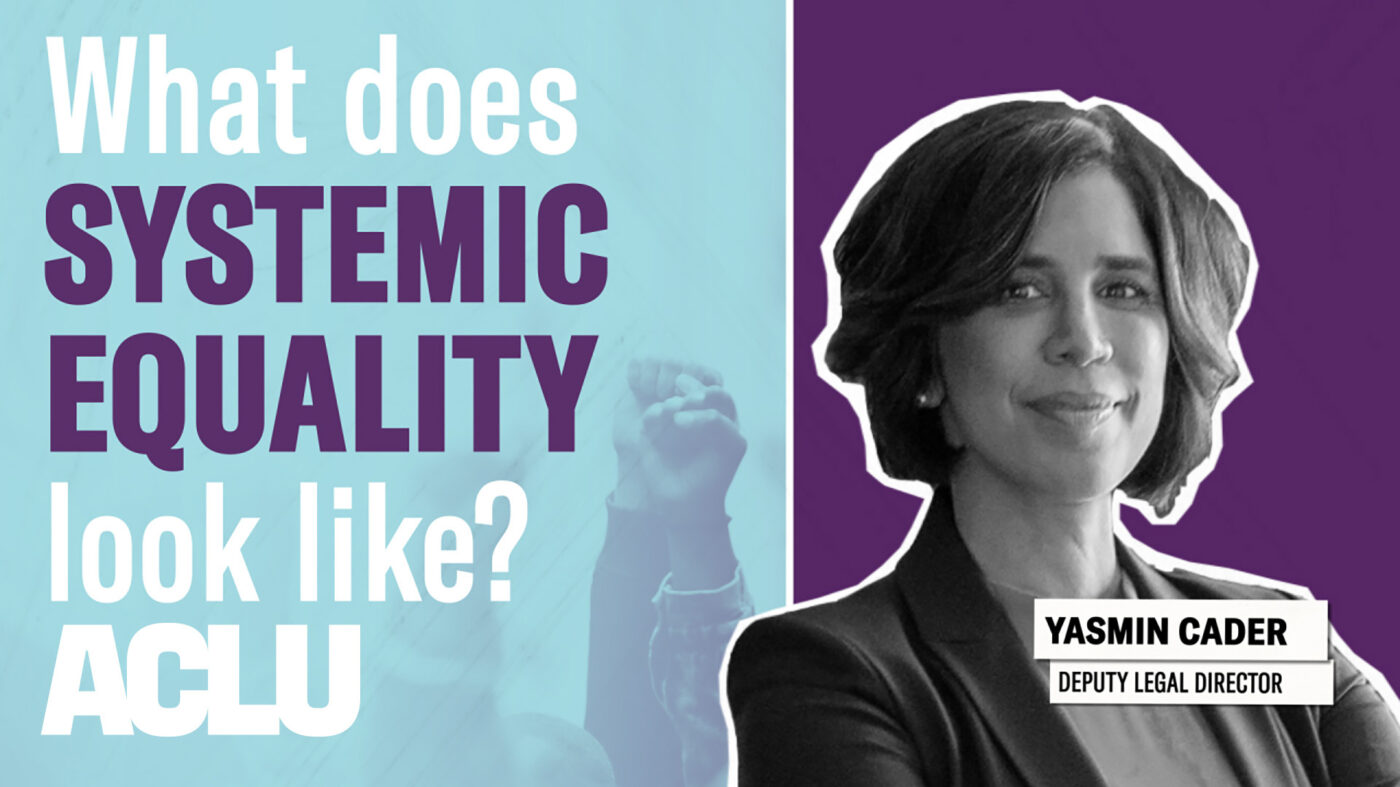
Learn More About the Issues on This Page
Related Content
- Nevada Supreme CourtAug 2025

Capital Punishment
Ybarra V. Warden. Explore Case.Ybarra v. Warden
This case presents the question of whether the execution of a capital defendant with serious mental illness violates Article I, section 6 of the Nevada Constitution, which prohibits cruel or unusual punishment. The ACLU’s Capital Punishment Project and State Supreme Court Initiative, along with the ACLU of Nevada, filed an amicus brief arguing that a plain reading of Article I, section 6 of the Nevada Constitution provides broader protections than the Eighth Amendment and should be interpreted to establish a categorical exemption from execution for this population.Status: Ongoing - Court CaseAug 2025

Capital Punishment
Immigrants' Rights
African Communities Together V. Lyons. Explore Case.African Communities Together v. Lyons
- U.S. Supreme CourtJul 2025
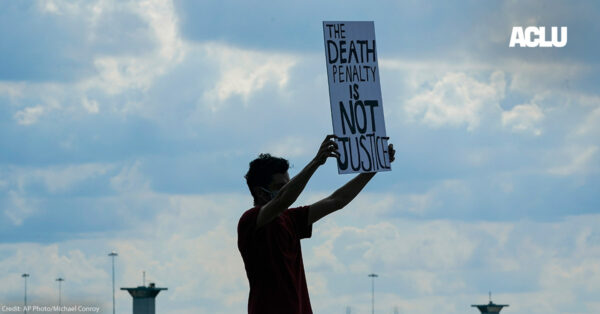
Capital Punishment
Anthony Wainwright V. Governor Of Florida Et Al.. Explore Case.Anthony Wainwright v. Governor of Florida et al.
Anthony Wainwright, who was facing imminent execution in Florida, attempted to file a petition in the Florida Supreme Court with the assistance of his pro bono counsel of choice. The court dismissed the petition only because his court-appointed refused to file it, despite the fact that Mr. Wainwright was entitled to do so under Florida law. He asked the United States Supreme Court to review his case to decide whether the Florida court’s action deprived him his constitutional right of access to the courts and his Sixth Amendment right to counsel. The United States Supreme Court refused to review the case, and the State of Florida executed him on June 10, 2025.Status: Closed (Judgment) - Press ReleaseJun 2025

Capital Punishment
Aclu Joins Calls To Gov. Newsom To Commute All Death Sentences As State Supreme Court Reviews Constitutional Challenge. Explore Press Release.ACLU Joins Calls to Gov. Newsom to Commute All Death Sentences as State Supreme Court Reviews Constitutional Challenge
SACRAMENTO, Calif. – The American Civil Liberties Union joined the growing chorus of calls to Gov. Newsom to commute all death sentences on California’s death row to life without parole at a press conference in Sacramento this morning hosted by the California Anti-Death Penalty Coalition. The call for commutations comes as the California Supreme Court considers a landmark petition filed in April 2024 by the ACLU, the ACLU of Northern California, the Legal Defense Fund (LDF), Wilmer Hale, and the Office of the State Public Defender (OSPD) challenging the state's death penalty statute as racially discriminatory and unconstitutional under the Equal Protection guarantees of the California Constitution. The petition demonstrates that racial disparities in California’s implementation of the death penalty are persistent, pervasive, and well documented. Black people are about five times more likely to be sentenced to death when compared to similarly situated non-Black defendants, while Latino people are at least three times more likely to be sentenced to death. “The evidence makes it abundantly clear that racial inequality infects every aspect of California's death penalty system,” said Claudia Van Wyk, senior counsel at the ACLU’s Capital Punishment Project. “Gov. Newsom recognized this when he imposed his moratorium on executions, but systemic failures of this magnitude require more than a temporary pause. While the courts deliberate our legal challenge, executive clemency offers an immediate remedy. The governor must finish what he started and commute every death sentence.” This week, the ACLU released a report on discrimination in capital jury selection citing studies in states across the country, including California. Studies of capital trials in California find that Black prospective jurors and women are disproportionately excluded and selected jurors are skewed from the eligible juror population, resulting in juries are less likely to deliberate and more likely to convict. “As the lawsuit we filed in 2024 makes clear, the stark racial disparities in the application of California's death-penalty system violate equal protection,” said Neil Sawhney, director of appellate advocacy at the ACLU of Northern California. “While we are hopeful that the California Supreme Court will rule in our favor, the governor can immediately remedy this unconstitutional discrimination through executive clemency.” With 570 people on death row, California has the largest death row in the nation and one of the largest in the world. Two-thirds of those sentenced have been on death row for more than 20 years, with dozens having spent more than 40 years awaiting execution.